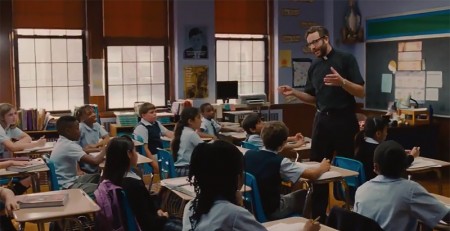Training The Religious Memory

Jolyon Baraka Thomas There is nothing quite so touching (or quite so irritating) as having a total stranger slump against you in a deep sleep on a Tokyo train. Like the Internet, Tokyo trains are equally intimate and anonymous. They are spaces where one encounters fellow Tokyoites in all their wacky fashion, their frenetic mobile phone gaming, their inane conversations, their drunken abandon. Tokyo trains are raucous in the evenings and eerily silent during the day. They are often uncomfortably crowded, but they are nevertheless a place to temporarily let down one’s guard. I’ve actually boarded the Yamanote circle line and ridden it all the way around the city just so I could sneak in an hour-long nap.
Indian Summers: Free Ramu Sood Edition

This is our final post in a series of discussions about the PBS Masterpiece series Indian Summers that aired on PBS. Sacred Matters’ managing editor Michael J. Altman and Ilyse Morgenstein Fuerst, assistant professor of religion at the University of Vermont, will offer their reviews of the series as it airs in the United States. NOTE: THERE ARE SPOILERS.
Progressive Priests and Pastors in Recent Popular Media

S. Brent Plate But I am interested in the complexity of human identity, and the ways these complexities allow a variety of practices, beliefs, and behaviors. Simply for the sake of accuracy, it is important to represent diverse channels of human character. Religious identities intersect with sexual, ethnic, racial, gendered, and national identities, and none of these are monolithic. In spite of what we might think based on media representations, not all Christians are conservatives, and not all Christian clergy are narrow-minded, abstaining teetotalers in ignorant servitude to some “Church,” some tradition.
7 Questions for Anthony Petro

I wanted to write something about religion and sexuality for my doctoral work, but I never thought about writing on religion and the AIDS crisis until I watched a film by Gregg Bordowitz, an artist and professor at the Art Institute of Chicago. . . . One of the scenes featured a gay black man standing at a microphone, describing how horrendous the AIDS crisis was at the time – in the 1980s – and then he spoke about God. Not in a negative way, but as a positive force, as a source of grace, even for gay men with AIDS.
Indian Summers: “For Europeans to Commit Murders is an Impossibility” Edition

This is our fourth in a series of discussions about the PBS Masterpiece series Indian Summers, airing Sunday nights at 9 pm EST on PBS. Sacred Matters’ managing editor Michael J. Altman and Ilyse Morgenstein Fuerst, assistant professor of religion at the University of Vermont, will offer their reviews of the series as it airs in the United States. NOTE: THERE ARE SPOILERS.
The Muppets are America

Hussein Rashid The Muppets are back on TV, and now seems to be a good moment to talk about how they represent what America is, not what it was. Their recent family news and music videos display the multi-cultural United States that is our new normal. First, of course, is the shocking news that Kermit and Miss Piggy have broken up, and that Kermit has a new girlfriend. It is a sad day, but also speaks to the fact that the US has a high divorce rate.
Seven Questions for Ted Smith

The deepest roots of this book, Weird John Brown, are in my attempts to think about how to live as a white man in a United States that is so deeply disfigured by slavery and its legacies.
American Religion: Less is More

Gary Laderman What do you think? Is religious life fully captured by survey questions, graphs and bar charts? Or do these methods of collecting and displaying data fall short as indicators of the spiritual lives of Americans? Is it time to panic about the supposed decline of religion, or should we look to other metrics and methods to delve into what is really happening on the American religious landscape?
Indian Summers: Find Your Seat at the Table Edition

This is our third in a series of discussions about the PBS Masterpiece series Indian Summers, airing Sunday nights at 9 pm EST on PBS. Sacred Matters’ managing editor Michael J. Altman and Ilyse Morgenstein Fuerst, assistant professor of religion at the University of Vermont, will offer their reviews of the series as it airs in the United States. NOTE: THERE ARE SPOILERS.
Giving up the Ghost?: Being Human in the Age of Intelligent Machines (Part I)

Sylvester Johnson For several centuries now, at least, a thriving humanities tradition has been established on the notion that being human is in large measure predicated on the ability to think and reason. In contemplating the nature of human ontology, Rene Descartes (1596–1650) famously quipped that the human subject can be known to exist precisely because of thinking, which requires a thinker as subject—Cogito ergo sum.
